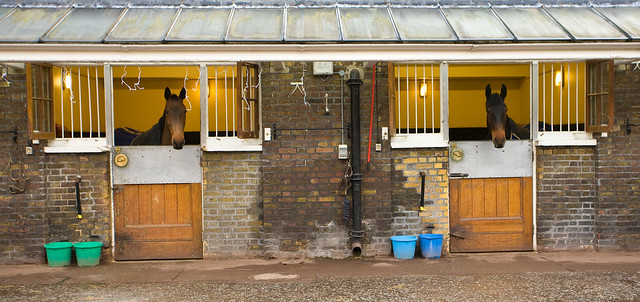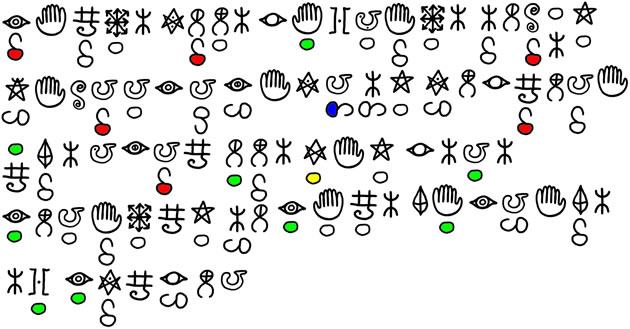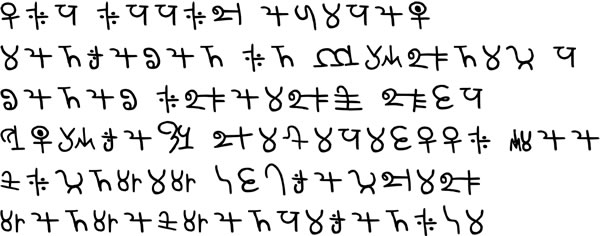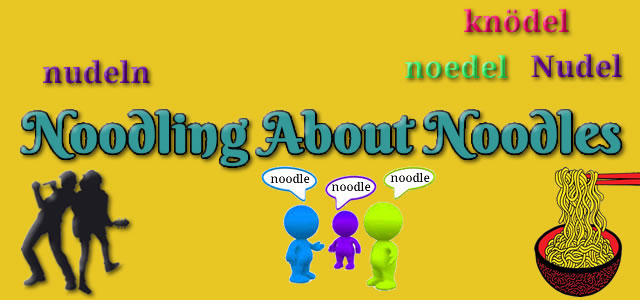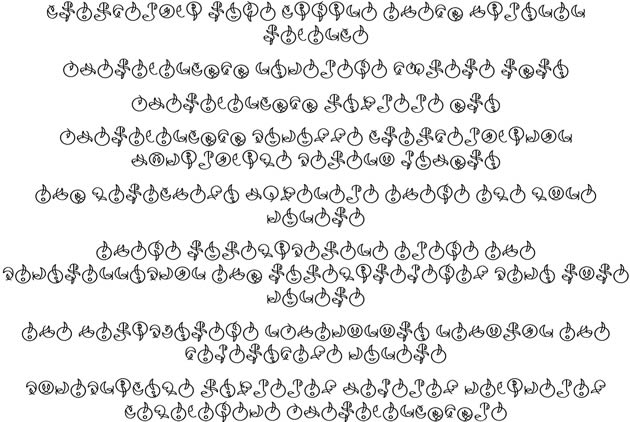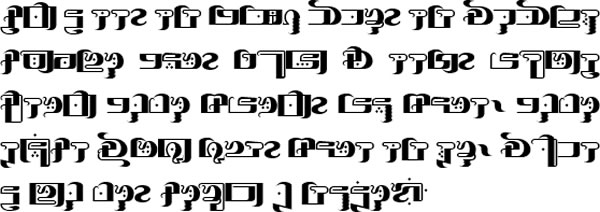Podcast: Play in new window | Download

Here’s the latest news from the world of Omniglot for the past three weeks – I was away on holiday in Scotland for a week, and didn’t have time to record newscasts during that time. (More on that later).
There are new language pages about:
- Niuatoputapu-Tafahi, an extinct Polynesian language or dialect cluster which was spoken on the islands Niuatoputapu and Tafahi in what is now Tonga.
- Isinai, a Central Cordilleran language spoken in the Province of Nueva Vizcaya in Luzon in the Philippines.
- Owa, a Southern Solomonic language spoken in Makira-Ulawa Province in the Solomon Iands.
- Desano, Carapana (Mõxtã), Tuyuca (Docapúaraye), and Yurutí, which are all Eastern Tucanoan language spoken in Colombia and in Brazil.
New constructed script: Marubhasha, an alternative way to write Telugu invented by K. Kiran Kumar.
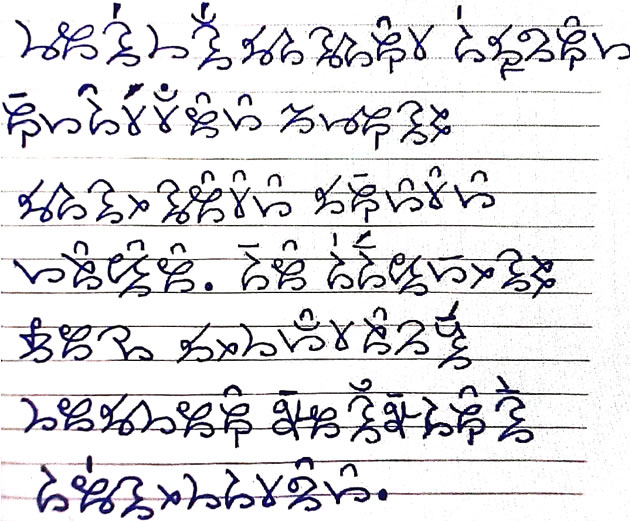
New constructed script: Erm, an alternative way to write English invented by Jeffy Huang and based mainly on the classical Mongolian script.
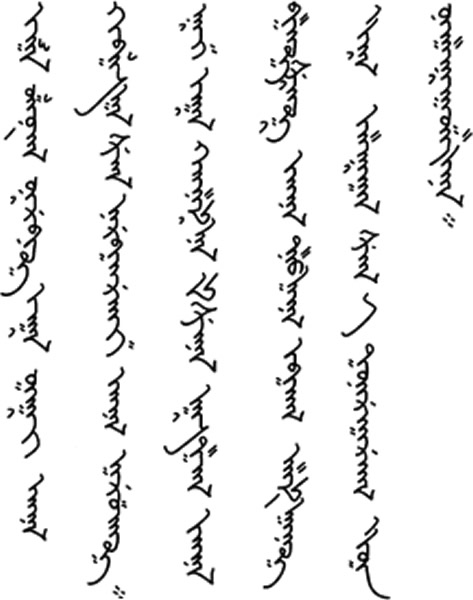
New constructed script: Ayxanər, which was created by Ayxan Eyvazov as an alternative way to write the Azerbaijani language.
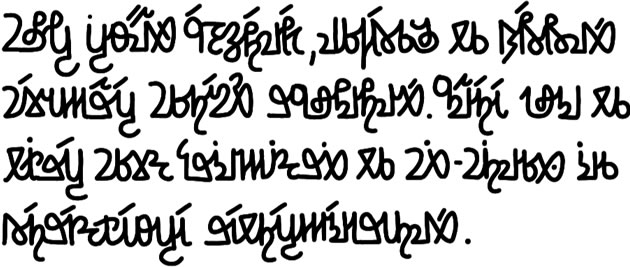
New phrases and numbers pages: Dogri (डोगरी), a Western Pahari language spoken in northern India.
New numbers pages:
- Saurashtra (ꢱꣃꢬꢵꢰ꣄ꢜ꣄ꢬꢵ), a Western Indo-Aryan language spoken in Tamil Nadu in southern India.
- Chorti (Ch’orti’), a Mayan language spoken in Guatemala, Honduras and El Salvador.
- Midland Mixe (Ayüük), a Mixe-Zoque language spoken in Oaxaca in southern Mexico.
New Tower of Babel translation: Midland Mixe (Ayüük)
On the Omniglot blog there are new posts about Sabhal Mòr Ostaig (the Scottish Gaelic college on the Isle of Skye where I spent most of my holiday), Turas Fada (Long Journey) (about my journey to Skye), Giving Up (a April’s fool post), and Mr(s) Rumbling, about the Japanese word ごろごろ様 (gorogoro sama – thunder). There’s also the usual Language Quiz. See if you can guess what language this is:
Here’s a clue: this language was spoken in California in the USA, and is currently being revived.
The mystery language in language quiz of 7th April was
Interslavic (Меджусловјански / Medžuslovjanski), an international auxiliary language designed to be used by speakers of different Slavic languages to communicate with one another.
The mystery languages in the language quiz of 14th April were
Assamese (অসমীয়া), an Eastern Indo-Aryan language spoken in India, Bangladesh and Bhutan, and Sylheti (ছিলটী), and Eastern Indo-Aryan language spoken in Bangladesh and India.
The recordings comes from YouTube:
New article: Lights, Camera, Action! Unleash the Power of Movies for Language Learning
In this week’s Adventure in Etymology, entitled Stable Stables, we find out whether the words stable (a building for horses) and stable (steady, permanent) are related.
On the Celtiadur blog there are new posts about words for Lies and Deceit and Ploughs, and I made improvements to the posts about words for Bridges, Seals and Purple.
I also made improvements to the Tindi, Kryts, Budukh, Hunzib, Bagvalal, Mi’kmaq, Guanano, Tzotzil, Tzeltal and Kubachi language pages.
In other news, I had a great time in Scotland doing a course in Scottish Gaelic songs at Sabhal Mòr Ostaig on the Isle of Skye. This is the tenth time I’ve been there doing courses in Gaelic songs, and we learnt about 30 songs in 5 days in the song class. I knew some of them already, but most were new to me. I’ve been learning Scottish Gaelic on and off for many years and speak it fairly fluently, so I tried to speak it as much as possibly while I was there. I also had conversations in French, Irish, Welsh, Mandarin Chinese and even English.
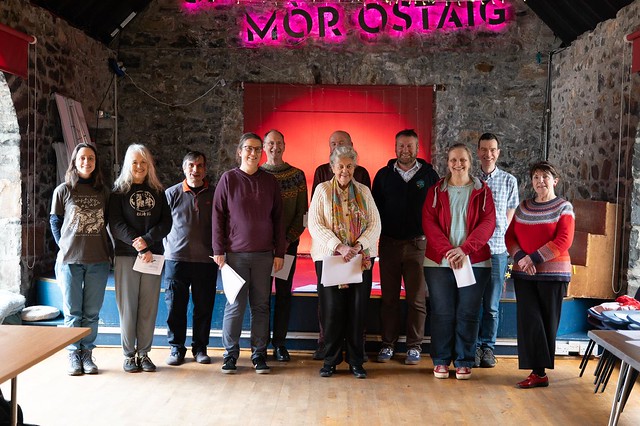
Gaelic Song Class April 2024 / Clas Òrain Ghàidhlig Giblean 2024
For more Omniglot News, see:
https://www.omniglot.com/news/
https://twitter.com/Omniglossia
https://www.facebook.com/groups/omniglot/
https://www.facebook.com/Omniglot-100430558332117
You can also listen to this podcast on: Apple Podcasts, Amazon Music, Stitcher, TuneIn, Podchaser, PlayerFM or podtail.
If you would like to support this podcast, you can make a donation via PayPal or Patreon, or contribute to Omniglot in other ways.
Radio Omniglot podcasts are brought to you in association with Blubrry Podcast Hosting, a great place to host your podcasts. Get your first month free with the promo code omniglot.



